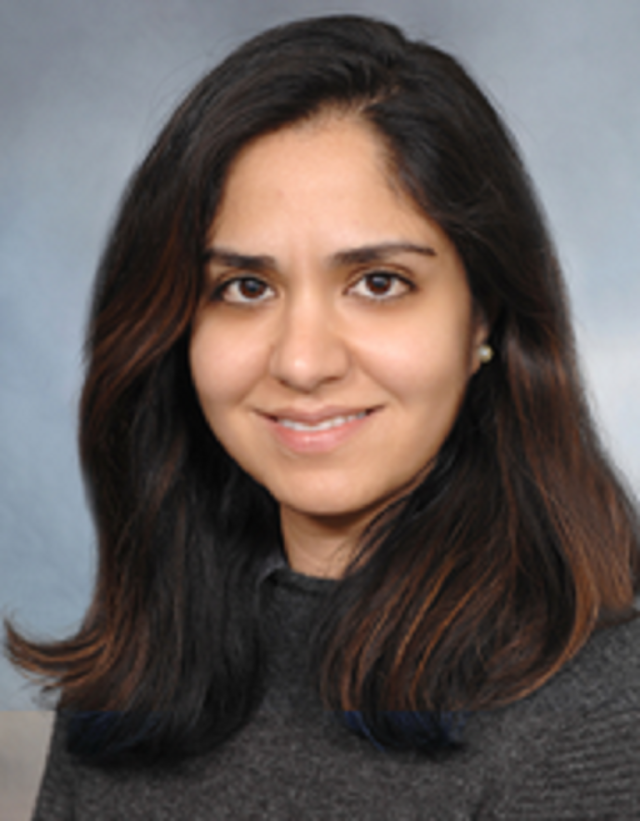Leyla Esfandiari, Ph.D., Associate Professor, University of Cincinnati, Lab-on-a-Chip Device Unveiling Extracellular Vesicle Secrets: Paving the Way for Liquid Biopsy and Regenerative Medicine

Speaker:
Leyla Esfandiari, Ph.D.
Associate Professor, Biomedical Engineering
University of Cincinnati
Faculty Host: Marley Dewey
Title: Lab-on-a-Chip Device Unveiling Extracellular Vesicle Secrets: Paving the Way for Liquid Biopsy and Regenerative Medicine
Abstract:
Small extracellular vesicles (sEVs), lipid-bilayer delimited nanoparticles naturally secreted by all cells, have attracted substantial interest as indispensable biomarkers spanning a diverse range of diseases. The isolation of sEVs with high efficiency, maintaining optimal yield and purity, is pivotal for unlocking their full potential in diagnostic, prognostic, and therapeutic applications. However, the intricate nature of clinical samples and the heterogeneous physicochemical properties of extracellular vesicles (EVs) present formidable challenges in their accurate isolation and characterization, particularly when derived from complex body fluids. In response to these challenges, our research has led to the development of a cutting-edge and patented electrokinetic-based microchip. This microchip stands as a simple yet powerful solution, specifically designed for the rapid and label-free purification of sEVs from various body fluids and cell culture medium. Leveraging a significantly low electric field, this innovative device streamlines the isolation process, ensuring both speed and efficiency. Notably, the microchip goes beyond mere isolation. It is tailored with a sophisticated sensing module that facilitates the detailed characterization of sEVs. This characterization is achieved by measuring the impedance of sEVs, providing insights into their dielectric properties. This multifaceted approach to sEV analysis enhances our capacity to understand and utilize these vesicles as crucial components in liquid biopsy procedures. This novel technology holds the potential to revolutionize diagnostic precision and drive therapeutic advancements in clinical practice, especially as we delve deeper into unraveling the complexities of sEVs.
Bio:
Dr. Leyla Esfandiari is an Associate Professor of Biomedical Engineering at the University of Cincinnati. She obtained her B.S. in Electrical Engineering from California State University of Long Beach (CSULB) and her M.Sc. in Biomedical Engineering from the University of California Irvine (UCI). She achieved her doctoral degree in Bioengineering from the University of California Los Angeles (UCLA), contributing to research at the California Nano-System Institution (CNSI) and the School of Medicine Neuroscience. In addition to her academic journey, Dr. Esfandiari brings three years of valuable industrial experience from tech companies in southern California. At University of Cincinnati, she holds joint appointments in Electrical Engineering and the Environmental and Public Health Sciences at the College of Medicine. As a distinguished member of the Cincinnati Cancer Center and the Center for Stem Cell and Organoid Medicine (CuSTOM) at Cincinnati Children's Hospital, her research focuses on developing innovative miniaturized devices, including sensors and actuators, for applications in liquid biopsy and regenerative medicine. Dr. Esfandiari's contributions have earned her recognition and support from prestigious institutions, including the National Institutes of Health (NINDS, NIGMS, NCI), the National Science Foundation (ECCS, BMAT), and the Department of Defense (CDMRP). Dr. Esfandiari's notable publication record in esteemed scientific journals, alongside the achievement of a granted US patent, highlights her significant contributions to academia and underscores her entrepreneurial pursuits. Her active involvement in the scholarly community is evident through her role as a speaker at numerous national and international conferences, contributing to the broader discourse in her field. She has earned numerous prestigious awards including the National Institutes of Health, Maximizing Investigator’s Research Award (MIRA), the National Science Foundation CAREER Award, the Distinguished Research Award from the College of Engineering and Applied Sciences, and the Restemeyer Teaching Excellence Award. Notably, she is a nominee for this year's prestigious National Blavatkin Young Scientist Award, highlighting the national impact and recognition of her contributions.